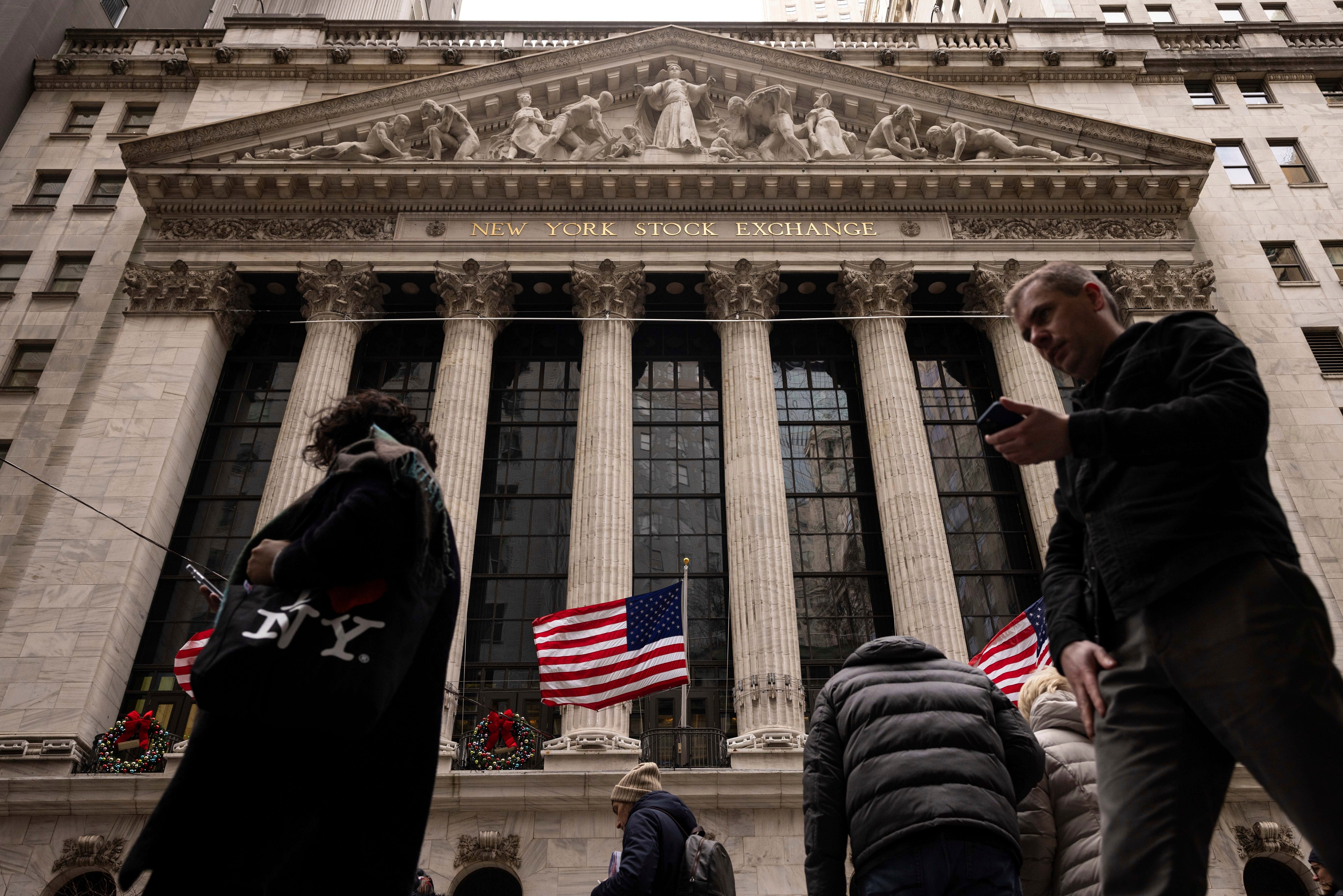Recession risks are fading, business economists say, but political tensions pose threat to economy
Just a quarter of business economists and analysts expect the United States to fall into recession this year

Your support helps us to tell the story
From reproductive rights to climate change to Big Tech, The Independent is on the ground when the story is developing. Whether it's investigating the financials of Elon Musk's pro-Trump PAC or producing our latest documentary, 'The A Word', which shines a light on the American women fighting for reproductive rights, we know how important it is to parse out the facts from the messaging.
At such a critical moment in US history, we need reporters on the ground. Your donation allows us to keep sending journalists to speak to both sides of the story.
The Independent is trusted by Americans across the entire political spectrum. And unlike many other quality news outlets, we choose not to lock Americans out of our reporting and analysis with paywalls. We believe quality journalism should be available to everyone, paid for by those who can afford it.
Your support makes all the difference.Just a quarter of business economists and analysts expect the United States to fall into recession this year. And any downturn would likely result from an external shock – such as a conflict involving China – rather than from domestic economic factors such as higher interest rates.
But respondents to a National Association of Business Economics survey released Monday still expect year-over-year inflation to exceed 2.5% -- above the Federal Reserve’s 2% target – through 2024.
A year ago, most forecasters expected the U.S. economy – the world’s largest – to slide into a recession as the Fed raised interest rates to fight a burst of inflation that began in 2021. The Fed hiked its benchmark rate 11 times from March 2022 to July 2023, taking it to the highest level in more than two decades.
Inflation has fallen from a peak of 9.1% in June 2022 to 3.4% in December. But the economy unexpectedly kept growing and employers kept hiring and resisting layoffs despite higher borrowing costs.
The combination of tumbling inflation and resilient growth has raised hopes – reflected in the NABE survey – that the Fed can achieve a so-called soft landing: vanquishing inflation without the pain of a recession.
“Panelists are more optimistic about the outlook for the domestic economy,’’ said Sam Khater, chief economist at mortgage giant Freddie Mac and chair of the association's economic policy survey committee.
The Fed has stopped raising rates and has signaled that it expects to reduce rates three times this year.
But a growing share of business forecasters worry that the Fed is keeping rates unnecessarily high: 21% in the NABE survey called the Fed’s policy “too restrictive,’’ up from the 14% who expressed that view in August. Still, 70% say the Fed has it “about right.’’
What worries respondents are the chances of a conflict between China and Taiwan even if it isn't an outright war: 63% consider such an outcome at least a “moderate probability.’’ Likewise, 97% see at least a moderate chance that conflict in the Middle East will drive oil prices above $90 a barrel (from around $77 now) and disrupt global shipping.
Another 85% are worried about political instability in the United States before or after the Nov. 5 presidential election.
The respondents are also increasingly concerned about U.S. government finances: 57% say budget policies – which have created a huge gap between what the government spends and what it collects in taxes – need to be more disciplined, up from 54% in August.
They say the most important objectives of government budget policy should be promoting medium- to long-term growth (cited by 45% of respondents) and reducing the federal deficit and debts (42%). Coming in a distant third – and cited by 7% -- is the goal of reducing income inequality.